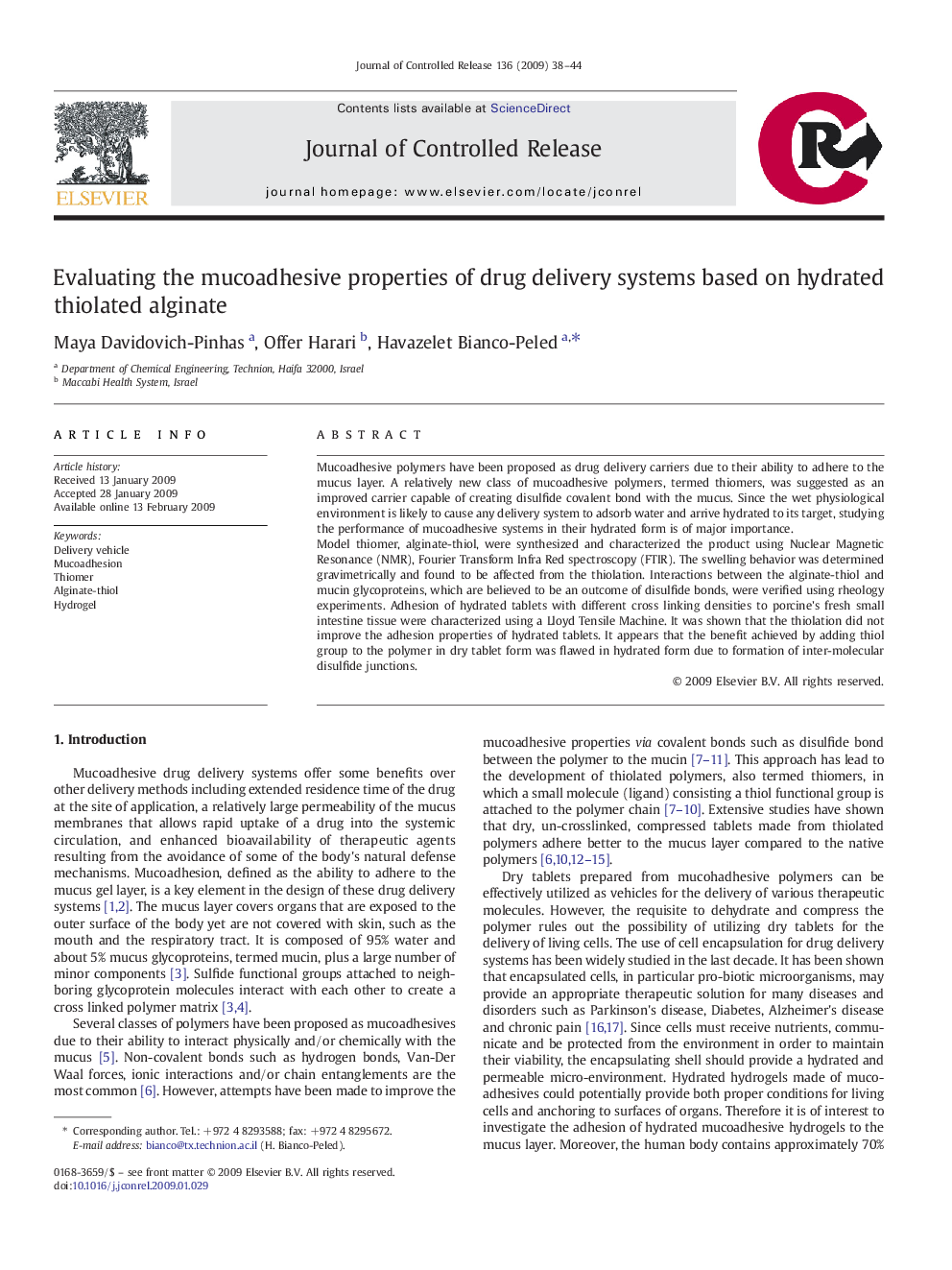| Article ID | Journal | Published Year | Pages | File Type |
|---|---|---|---|---|
| 1426327 | Journal of Controlled Release | 2009 | 7 Pages |
Mucoadhesive polymers have been proposed as drug delivery carriers due to their ability to adhere to the mucus layer. A relatively new class of mucoadhesive polymers, termed thiomers, was suggested as an improved carrier capable of creating disulfide covalent bond with the mucus. Since the wet physiological environment is likely to cause any delivery system to adsorb water and arrive hydrated to its target, studying the performance of mucoadhesive systems in their hydrated form is of major importance.Model thiomer, alginate-thiol, were synthesized and characterized the product using Nuclear Magnetic Resonance (NMR), Fourier Transform Infra Red spectroscopy (FTIR). The swelling behavior was determined gravimetrically and found to be affected from the thiolation. Interactions between the alginate-thiol and mucin glycoproteins, which are believed to be an outcome of disulfide bonds, were verified using rheology experiments. Adhesion of hydrated tablets with different cross linking densities to porcine's fresh small intestine tissue were characterized using a Lloyd Tensile Machine. It was shown that the thiolation did not improve the adhesion properties of hydrated tablets. It appears that the benefit achieved by adding thiol group to the polymer in dry tablet form was flawed in hydrated form due to formation of inter-molecular disulfide junctions.
Graphical abstractFx1 Figure optionsDownload full-size imageDownload as PowerPoint slide
